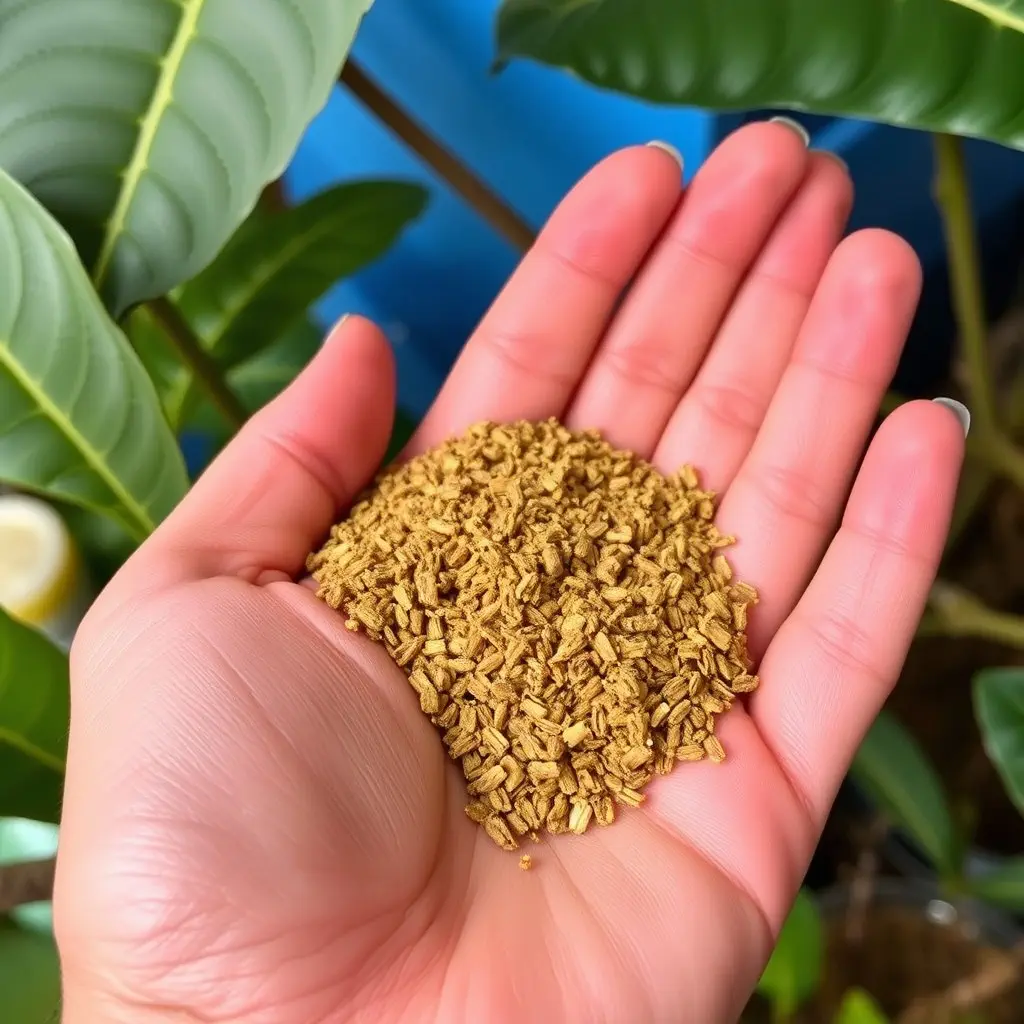Kratom, from the leaves of Mitragyna speciosa, offers cognitive benefits through compounds like mitragynine and 7-hydroxymitragynine that interact with opioid receptors in the brain. Traditionally brewed as Egyptian Flower Tea, this method provides a gentle release of active compounds, enhancing focus and mental clarity without jitteriness. Kratom's unique cultural origins and potent cognitive effects make it an attractive natural stimulant for concentration and mood improvement.
Kratom, particularly Egyptian flower tea, has gained attention for its potential to boost mental focus and clarity. This natural herb, rich in compounds like mitragynine and 7-hydroxymitragynine, offers a unique approach to enhancing cognitive performance. Research suggests it can mitigate mental fatigue, improve concentration, and optimize brain function by promoting better neural communication and reducing stress hormones. This article explores the science behind kratom’s effects, its role in improving mental clarity, and practical tips for integrating Egyptian flower tea into your routine for sustained focus.
- The Science Behind Kratom and Mental Focus
- – Explain what kratom is and its origins, particularly focusing on Egyptian flower tea as a specific strain or variety.
- – Discuss the chemical composition of kratom (mitragynine, 7-hydroxymitragynine) and its effects on brain function.
The Science Behind Kratom and Mental Focus
The science behind Kratom and its effects on mental focus is an intriguing area of study. Kratom, derived from the leaves of the Mitragyna speciosa plant, has gained popularity for its potential cognitive-enhancing properties. Research suggests that certain compounds in Kratom, such as mitragynine and 7-hydroxymitragynine, interact with opioid receptors in the brain, leading to improvements in focus, concentration, and mood. These compounds act as agonists, mimicking the effects of endorphins naturally produced by our bodies, which can result in a heightened sense of well-being and mental clarity.
Kratom is often consumed in the form of Egyptian flower tea, where the delicate leaves are infused in hot water, releasing their beneficial compounds. This traditional preparation method allows for a gentle and controlled release of Kratom’s active ingredients, making it easier to achieve desired effects without potential side effects associated with higher doses. The moderate stimulation provided by Kratom can enhance mental focus without causing jitteriness or anxiety, making it an appealing option for individuals seeking a natural way to boost their cognitive performance.
– Explain what kratom is and its origins, particularly focusing on Egyptian flower tea as a specific strain or variety.
Kratom, a botanical substance derived from the leaves of the Mitragyna speciosa tree, has gained significant attention for its potential cognitive benefits. Among various strains, Egyptian Flower Tea stands out as a unique and potent variant. This tea is not merely a strain but a specific variety known for its rich history and distinct properties. The origins of kratom can be traced back to Southeast Asia, particularly regions like Thailand and Malaysia, where it has been used traditionally for centuries. Egyptian Flower Tea, as the name suggests, is believed to have been cultivated and refined in Egypt, adding a unique cultural dimension to its usage.
This specific strain is renowned for its ability to enhance mental focus and clarity without inducing sedative effects. It achieves this through its complex chemical composition, primarily containing alkaloids such as mitragynine and 7-hydroxymitragynine. These compounds interact with the body’s opioid receptors, offering a range of therapeutic effects, including improved mood, reduced anxiety, and enhanced cognitive performance. The delicate process of brewing Egyptian Flower Tea extracts these beneficial compounds, making it a popular choice among individuals seeking a natural alternative for mental stimulation and concentration.
– Discuss the chemical composition of kratom (mitragynine, 7-hydroxymitragynine) and its effects on brain function.
Kratom, scientifically known as Mitragyna speciosa, is a tropical plant native to Southeast Asia. Its primary chemical compounds, mitragynine and 7-hydroxymitragynine, are responsible for its unique effects on brain function. These alkaloids interact with opioid receptors in the brain, influencing neurotransmitters like dopamine and serotonin. This interaction can lead to enhanced mental focus and clarity, making kratom a popular choice for those seeking improved cognitive performance. Often enjoyed as an egyptian flower tea, kratom’s ability to stimulate alertness without causing anxiety has made it a game-changer for many individuals navigating demanding lifestyles or seeking natural solutions for mental focus.
Kratom, particularly Egyptian flower tea, has shown potential in enhancing mental focus and clarity. The key compounds mitragynine and 7-hydroxymitragynine interact with brain receptors, influencing cognitive functions. While more research is needed, the scientific evidence suggests that kratom could be a natural alternative for improving concentration and mental performance. Remember that, as with any substance, moderation and consultation with a healthcare professional are essential.






